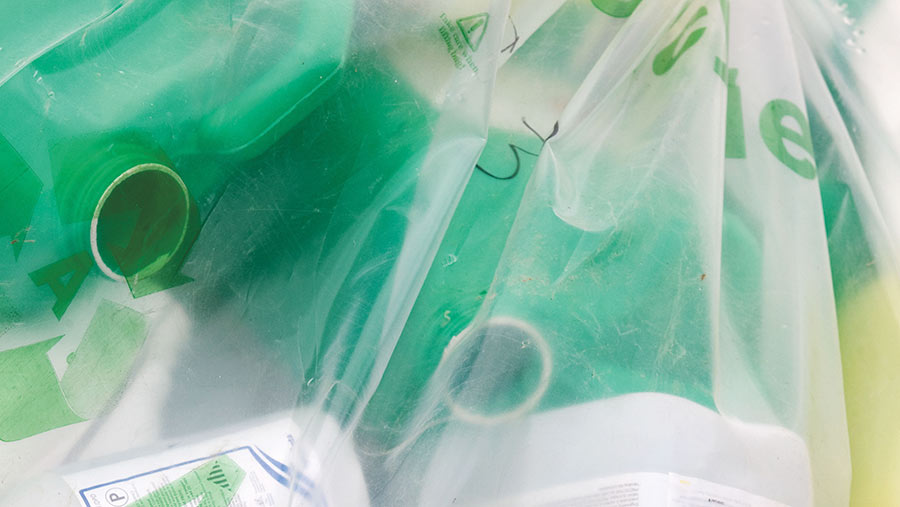End to plastic burning in Scotland in 2019
 © Tim Scrivener
© Tim Scrivener Farmers in Scotland are being reminded that they will no longer be allowed to burn plastics on-farm after a ban comes into force on 1 January 2019.
The rule change brings Scottish farmers into line with the rest of the UK who also have to get rid of waste such as bale wrap, spray containers and fertiliser bags by paying to recycle them using a specialist waste contractor.
This may be by having an on-farm collection or by taking waste to a central collection point, although it is not clear at this stage if all farmers have access to an appropriate service.
See also: Plastic pollution focuses farms on correct treatment of waste
Where a recycling service is unavailable, waste can be disposed of in an authorised landfill, but a Professional Collectors and Transporters of Waste form may need to be filled in first.
More information is available on the Scottish Environment Protection Agency website (PRINT: which can be found by searching “SEPA burning on-farm waste”.
Unwelcome expense
NFU Scotland President Andrew McCornick said: “We understand this will be an unwelcome expense and inconvenience for a number of our members, many of whom are in extremely remote regions and islands and feel they will struggle to find affordable alternatives.
“Any member who is unsure about how to find or contact the relevant contractors for legally disposing of farm plastics can find comprehensive guidance and a list of contractors on our Business Guide Update on our website.
Farmers are also being encouraged to use the rule change as an opportunity to review how much waste their businesses produce.
Fife farmer David Bell, who was a 2018 Farmers Weekly Awards Mixed Farmer of the Year finalist, has cut the amount of waste plastic generated by his beef and arable enterprises by buying more inputs in bulk and switching from granular to liquid fertiliser.
This has reduced the waste fertiliser bags the business generates by more than 380 and also given agronomic improvements by allowing fertiliser to be precisely placed right up to the edge of cropping areas.
